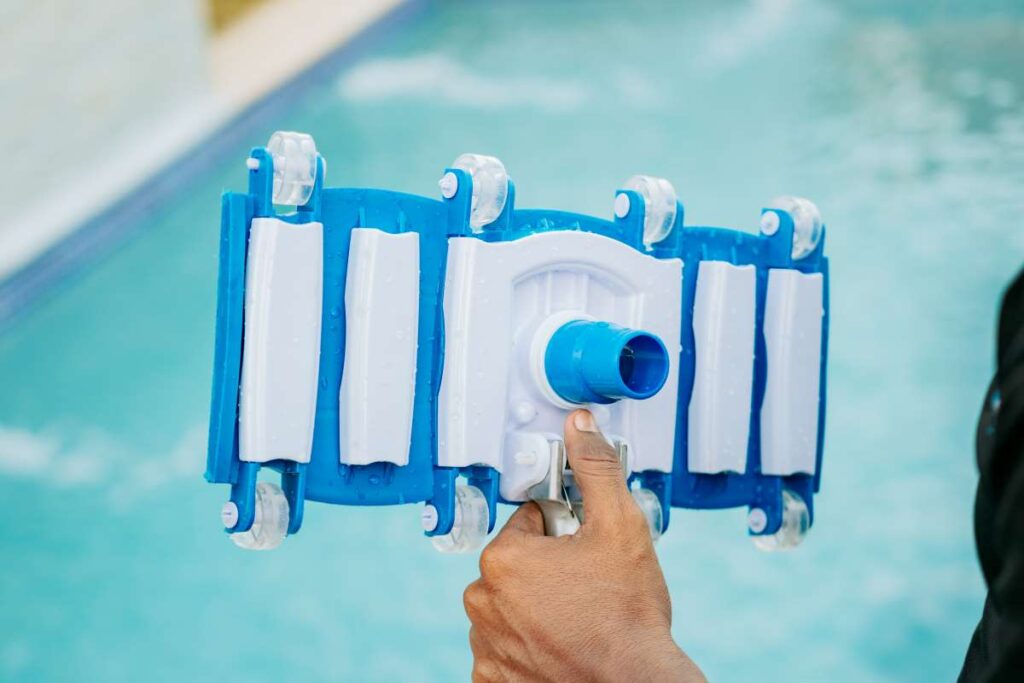Unlock the secrets to effective communication in the field with our comprehensive guide tailored for Palm Coast, Florida.
Effective Field Communication Tips in Palm Coast, Florida
In today’s fast-paced business environment, effective communication is more crucial than ever, especially for service-based industries. In Palm Coast, Florida, where the pool maintenance industry thrives, mastering field communication can significantly enhance operations and customer satisfaction. This blog post will explore practical and actionable communication strategies tailored for pool service businesses, helping you streamline your operations and improve client relationships. We’ll delve into techniques to foster clear communication among team members, the importance of utilizing technology effectively, and practical tips for ensuring your messages resonate with clients.
Communication isn’t just about exchanging information; it’s about creating an understanding. For pool service providers in Palm Coast, effective field communication can lead to smoother operations, improved customer relations, and ultimately, greater business success. In this post, we’ll outline strategies that can help your business thrive in a competitive market.
Understanding Your Communication Landscape
The first step to effective communication is understanding your audience—both your team members and your clients. In Palm Coast, the demographics of pool service customers can vary significantly, from families looking for fun in their backyard to retirees who want to maintain their pool effortlessly. Understanding these different perspectives allows your team to tailor their communication accordingly.
For instance, younger families may appreciate quick, text-based updates regarding service appointments, while older clients might prefer more detailed phone calls or emails. By adapting your communication style, you can cater to the preferences of your clientele, enhancing engagement and satisfaction.
Additionally, within your teams, understanding individual roles and responsibilities is key. Make sure everyone is clear about their tasks and how they contribute to overall goals. Regular team meetings can help reinforce this clarity, allowing for questions and feedback that can improve future communications.
Leveraging Technology for Enhanced Communication
Incorporating technology into your field communication strategy can significantly enhance efficiency. Utilizing mobile applications or communication platforms like Slack or Microsoft Teams allows your team members to stay connected no matter where they are working. For example, a centralized communication platform can help your technicians share updates on service appointments or any issues they encounter on-site.
Moreover, implementing customer relationship management (CRM) systems can help track client interactions, preferences, and service history, which is invaluable when communicating with clients. Using tools like automated reminders for appointments and follow-ups can foster a sense of reliability and professionalism, ultimately leading to higher customer satisfaction.
For pool service businesses, sending out regular maintenance reminders or tips via email or text can educate clients and keep your brand top-of-mind. This proactive approach can prevent misunderstandings and ensure customers feel valued and informed.
Active Listening as a Key Component
Active listening is a crucial element often overlooked in communication strategies. In the context of field operations, listening carefully to both team members and clients can lead to better service outcomes. For example, when a technician listens to a client’s concerns about their pool, they can provide tailored solutions that directly address the issue, leading to happier customers.
Training your staff in active listening techniques can significantly improve client interactions. Encourage your team to ask clarifying questions and to repeat back what clients have said to ensure understanding. This not only builds trust but also helps in accurately diagnosing problems and providing solutions.
Additionally, fostering a culture of open communication within your team encourages everyone to voice their concerns and suggestions. Creating an environment where feedback is welcomed can lead to improved processes and employee satisfaction.
Clear and Concise Messaging
When communicating both internally and externally, clarity is essential. Use straightforward language and avoid jargon that may confuse clients. For instance, during service appointments, technicians should explain the work being done in simple terms, outlining the benefits to the customer clearly.
In your internal communication, ensure that messages are concise and to the point. Long emails or messages can lead to important information being overlooked. Instead, aim for bullet points or summaries that highlight key takeaways, making it easier for team members to digest the information.
Furthermore, consider using visual aids where applicable. Infographics or simple diagrams can make complex information more accessible, especially for clients who may not be familiar with pool maintenance terminology.
Cultivating Empathy in Communication
Empathy is a powerful tool in effective communication. Understanding a client’s emotions and perspectives can greatly enhance service delivery. In the pool service industry, clients may be stressed due to maintenance issues, and showing empathy can alleviate their concerns.
Train your team to recognize emotional cues and respond appropriately. A technician who understands a client’s frustration with a pool leak, for instance, can reassure them with a calm demeanor while explaining the steps being taken to resolve the issue.
Additionally, empathy should extend to team interactions. When team members support each other through challenges and recognize each other’s contributions, it fosters a positive work environment that enhances overall communication.
Feedback Loops for Continuous Improvement
Implementing feedback loops is essential for refining communication strategies. Regularly solicit feedback from both clients and team members about their experiences and expectations. This can be done through surveys, suggestion boxes, or informal check-ins.
For instance, after completing a service appointment, sending a follow-up survey can provide insights into client satisfaction and areas for improvement. Similarly, conducting debriefing sessions with your team after major projects can help identify communication strengths and weaknesses that can be addressed in future endeavors.
Utilizing this feedback not only helps improve your communication but also demonstrates to clients and staff that their opinions are valued, fostering loyalty and engagement.
Training and Development for Effective Communication
Investing in communication training for your team can yield significant long-term benefits. Workshops focused on effective communication skills, conflict resolution, and customer service can help enhance the capabilities of your staff. These training sessions can provide practical tools that staff can apply directly in their interactions with clients.
Moreover, consider role-playing scenarios where team members can practice their communication skills in a safe environment. This not only builds confidence but also prepares them for real-life situations they may encounter.
Additionally, providing ongoing training opportunities helps keep communication skills sharp and relevant, ensuring that your team remains adaptable to changing client needs and industry trends.
The Importance of Consistency
Consistent communication is key to building trust with clients and within your team. Establishing standard operating procedures for how to communicate about services, pricing changes, and customer interactions can help standardize the experience across the board.
For instance, if a technician encounters a recurring issue with a pool that requires additional repairs, having a standardized procedure to communicate these findings to the client can prevent confusion and unexpected costs.
Regularly review these procedures to ensure they remain relevant and effective, adapting them as necessary to reflect changes in your business or industry standards.
Conclusion
Effective field communication is an integral part of running a successful pool service business in Palm Coast, Florida. By understanding your audience, leveraging technology, practicing active listening, and fostering empathy, you can create a communication environment that benefits both your clients and your team.
Investing in training and establishing consistent communication practices will not only enhance your service delivery but also contribute to overall business growth and customer satisfaction. As you implement these strategies, remember that communication is a two-way street—listen as much as you speak, and you’ll build stronger relationships with your clients and your team.
For service entrepreneurs looking to expand, exploring options such as [Pool Routes for Sale](https://pool-routes-for-sale.com/) can provide immediate revenue opportunities while integrating these communication strategies into your growing operations. Contact us today to begin your journey into pool route ownership!



